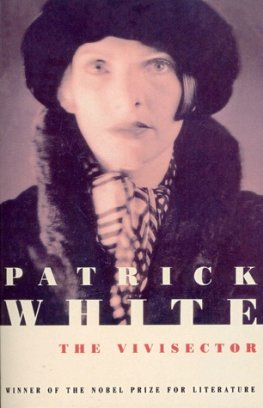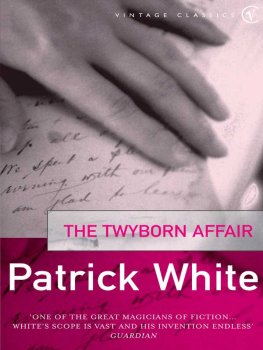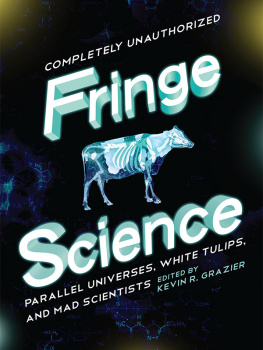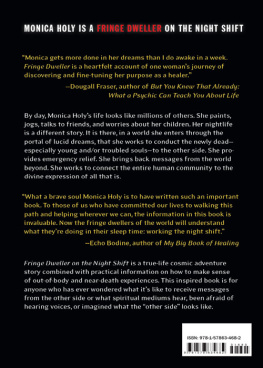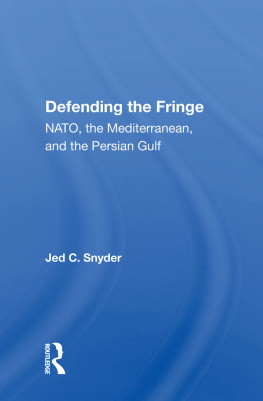Patrick White
The Fringe of Leaves
A FRINGE OF LEAVES
Patrick White was born in England in 1912. He was taken to Australia (where his father owned a sheep farm) when he was six months old, but educated in England, at Cheltenham College and Kings College, Cambridge. He settled in London, where he wrote several unpublished novels, then served in the RAF during the war; he returned after the war to Australia.
He became the most considerable figure in modern Australian literature, awarded the Nobel Prize for Literature in 1973. The great poet of Australian landscape, he has turned its vast empty spaces into great mythic landscapes of the soul. His position as man of letters was controversial, provoked by his acerbic, unpredictable public statements and his belief that it is eccentric individuals who offer the only hope of salvation. Technically brilliant, he is one modern novelist to whom the oft-abused epithet visionary can safely be applied. He died in September 1990.
A perfect Woman, nobly planned,
To warn, to comfort, and command.
William Wordsworth
RAT-WIFE Humbly begging pardon are your worships troubled with any gnawing things in the house?
ALMERS Here? No, I dont think so.
RAT-WIFE If you had, it would be such a pleasure to rid your worships house of them.
RITA Yes, yes, we understand. But we have nothing of the sort here.
Henrik Ibsen
If there is some true good in a man, it can only be unknown to himself.
Simone Weil
Love is your last chance. There is really nothing else on earth to keep you there.
Louis Aragon

As the carriage drew away from the Circular Wharf Mr Stafford Merivale tapped the back of his wifes hand and remarked that they had done their duty.
No one, Mrs Merivale replied, can accuse me of neglecting duty. She might have pouted if inherent indolence had not prevailed, and a suspicion that those acquainted with her must know that her claim was not strictly true.
So she smoothed the kid into which her hands had been stuffed, and added, At least we were, I think, agreeably entertained. And that is always compensation for any kind of inconvenience. Miss Scrimshaw, she asked, looking not quite at her friend, werent we entertained?
Oh yes, most agreeably, the latter answered in a rush, which transposed what must have been a deep voice into a higher, unnatural key. Living at such a distance nobody can fail to be refreshed by visitors from Home. The pity is when their visits are so brief.
Mrs Merivale decided to appear satisfied, while Miss Scrimshaw, obviously, was not. An atmosphere of unconfessed presentiment was intensified by the slight creaking of woodwork and friction of leather in the comfortably upholstered carriage. Rocked together and apart by the uneven surface of the street the occupants were at the mercy of the land as seaborne passengers are threatened by the waves.
Short visits make no demands, Mrs Merivale consoled herself. Dont you agree? Mr Merivale being a man, there was no question but that her remark was intended for Miss Scrimshaw.
Oh yes, she answered as expected, there is that about short visits.
In all the large circle of her acquaintance it was Miss Scrimshaws duty to agree, which was why her voice sounded only on some occasions her own. In exceptional circumstances, however, she would express an opinion, and it was this, together with her strong nose, long teeth, and Exalted Connection, which caused the Mrs Merivales of Sydney to glance not quite at their companion and hope they were accepted.
Who can guess, Mrs Merivale ventured to pursue the subject, from exchanging a few friendly words, with strangers, on a ships deck, what demands a longer visit might entail.
At that point the carriage lurched.
Oh no, people can be frightful! Miss Scrimshaw asserted, rather flat, but surprisingly loud. I do not believe one will ever arrive at the end of peoples frightfulness.
This was an exceptional circumstance, and it made Mrs Merivale quail inside her fur palatine.
I dont know, her husband began, who had been content until now to leave it to the ladies, and to sit staring in transparent pleasure at whatever object presented itself the other side of the carriage window; I dont believe Ive ever come across a fellow in whom I didnt find a fair measure of good.
There was so much that his sex and nature must always prevent him understanding, the two ladies were at once reduced to a collusive silence.
Mrs Merivale looked in some detachment at her husbands hand as it rested against the window-jamb, the skin altered inexorably by those first years in a harsh land into something almost part of it. Mrs Merivale shuddered to remember a lizard which had once stared at her, through bleached grass, from a scorched earth.
Mr Stafford Merivale was of that stamp of English gentleman, not so gentle as not to be firm, not too positive, yet not altogether negative, who will transplant reliably from his native soil to the most unpromising pockets of the globe. Engaged by the Crown as a surveyor, he had already investigated vast tracts of the colony of New South Wales, and on one occasion pushed as far as the more recent settlement at Moreton Bay. His strength lay in his capacity for enduring boredom, his wife suspected, quite overlooking the possibility of a relationship with a landscape, an unprepossessing one at that. By now Mr Merivale was as tanned as leather, as chapped as canvas, practically a fitting of his customary saddle. Mrs Merivale traced a seam, enjoying the texture of her newly imported merino gown. For a brief, unhappy period after joining her husband in the country of his fate or choice, she had been persuaded to follow him into its surprising hinterland. She had jolted sulkily behind him on a dray, and made a somewhat unwilling effort at bivouacking. There had been the episode of the lizard, and many others too awful to remember. Mrs Merivale was an adept at closing her mind to awfulness. Divine mercy, besides, had blessed her very soon with a delicate state of health, so that she was able to retire to a villa at the Glebe, and have the girl draw its curtains almost as at Winchester. As for Mr Merivale, he was too absorbed in his mans world of levels and distances, of soil and water, to notice her absence overmuch, but when released from official duties, would make his way to the villa at the Glebe to fulfil those other duties of a husband. His wife submitted, while the washstand-set unpleasantly rattled, and a foreign skin caught in her satin coverlet.
Now as Mrs Merivale sat tracing her seam, she tried to think of the answer she would make to the man she had elected to marry.
Miss Scrimshaw did not mean, she explained with ever such patience, she did not mean that all people are wholly frightful.
But for some reason, for the moment, her friend refused to collaborate.
Almost all! Miss Scrimshaw persisted.
Mrs Merivale was taken with a laughter, which would heave itself up at times, in wheezy, but fairly refined bursts, out of the depths of her stays, shocking in anyone normally so placid. Oh, my dear, she cried, it is the north-easter! It has given you a liver! But at once she wondered how she had dared, remembering Miss Scrimshaws Connection: the Honourable Mrs Chetwynd of Saffron Walden.
When I proposed this little expedition to Bristol Maid, to speed the Roxburghs on their way, I didnt expect we should be plunged in gloom, Mr Merivale remarked, his own good humour protecting him from becoming more than superficially involved.


